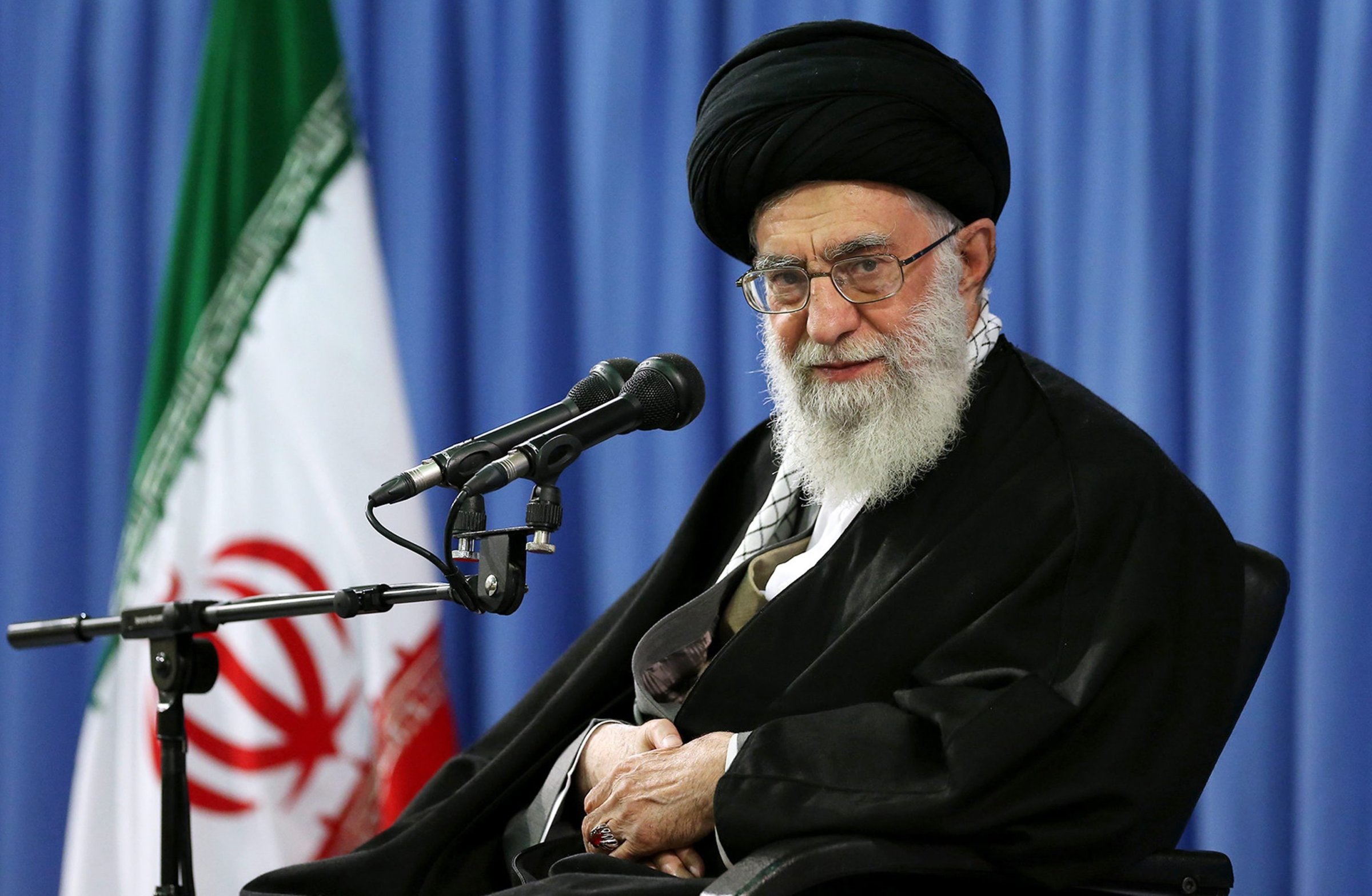
Ayatullah Ali Khamenei broke his silence on the outline of a nuclear deal with the West on April 9, in a speech widely understood to be a buzzkill. “I have told the officials to not trust the opposing side,” he said, “to not be fooled by their smiles, to not trust their promises because when they have achieved their objectives they will laugh at you.”
But was it really a nail in the coffin for the negotiations? There’s no one answer, not least because over the week that followed it has become clear Iran’s Supreme Leader was trying to do several things at once:
1. Take control of the narrative.
By the time Khamenei, 75 and ailing, took the stage in Tehran in April, it was clear Iran’s right-wingers needed to be let out of their cage. At that point, all the skepticism toward the outline agreement seemed to be coming from the U.S. Congress, and in these negotiations, skepticism back home serves to improve one’s bargaining position. Every harsh appraisal from the Hill — which appears poised to demand review of any final deal — arms Western negotiators with new leverage to push even harder for Iranian concessions, as the two sides seek to nail down specifics before the June 30 deadline for a final pact.
But American politicians outshouting Iranians in opposition to a nuclear deal is a strange and rare dynamic, like McDonald’s hawking the Whopper, with Iran in the role of Burger King. The Leader set out to right the universe. Three times in his speech Khamenei called on negotiators to heed or answer “critics,” conspicuously lifting the ban on smack talk. He also directed them to address two specific points that apparently remain outstanding: the timing of lifting all sanctions, which Khamenei said should be immediate, and access of U.N. inspectors to Iranian military facilities, which he at least appeared to forbid.
2. Quiet the crowds.
Iran’s theocratic government is not a monolith, and the unpleasant political reality was that the factions least identified with Khamenei received all the acclaim for the prospective deal announced on April 2. Cheering reformist Foreign Minister Javad Zarif upon arrival from Switzerland, the crowd at the airport chanted, “Kayhan, Israel, our condolences,” naming a hard-line newspaper (whose editor Khamenei appoints) as a loser. Khamenei used his speech to declare that there’s nothing to cheer yet. “Nothing has yet been done and no binding topic has been brought up between the two sides,” he said, in the transcript posted on his personal website, www.leader.ir. “Therefore, extending congratulations is pointless.”
Abbas Milani, who runs the Iranian studies program at Stanford, tells TIME that while President Hassan Rouhani was elected on the platform of striking a deal, Khamenei “doesn’t want Rouhani to get too much credit. He’s very clear: If there’s a deal, it’s because I wanted it. And if there’s not, it’s because these guys were too frivolous to understand they were giving away too much.”
3. Keep the door open.
Khamenei may well loathe and distrust America, but along with the usual name-calling (“obstinate, unreliable, dishonest and into backstabbing”), his speech made clear his willingness to seal a deal — and even work with Washington on future projects, should this one end well. “Of course, the negotiations on the nuclear issue are an experience,” he said. “If the opposite side gives up its misconduct, we can continue this experience in other issues.” He even raised the possibility of extending the talks beyond the June 30 deadline, one more measure of how badly Iran needs a final pact. The regime Khamenei inherited in 1989 from Grand Ayatullah Ruhollah Khomeini may or may not want a nuclear weapon, but without relief from economic sanctions it will be in continuing danger. It’s not only a matter of the hardship born by ordinary Iranians, but by the state itself. Iran’s public sector accounts for perhaps three-quarters of the national economy, directly employing 80% of the Iranian workforce. Small wonder that Khamanei authorized the nuclear negotiations with a call for “heroic flexibility.”
The Supreme Leader’s speech can be seen as a kind of “Rorschach test,” Karim Sadjadpour, an analyst at the Carnegie Endowment for International Peace who has written extensively on Khamenei, tells TIME. “He throws a lot of red meat to his hard-line base to reassure them he’s still an anti-American revolutionary. But careful readers also notice that underneath all the vitriol, he leaves the door of compromise with the U.S. slightly ajar. Given how badly the Iranian people want this deal to happen, Khamenei doesn’t want to be seen in their eyes as the obstacle.”
All of which, when the dust has cleared, looks like a stronger position for the West as the next round.
More Must-Reads from TIME
- Donald Trump Is TIME's 2024 Person of the Year
- Why We Chose Trump as Person of the Year
- Is Intermittent Fasting Good or Bad for You?
- The 100 Must-Read Books of 2024
- The 20 Best Christmas TV Episodes
- Column: If Optimism Feels Ridiculous Now, Try Hope
- The Future of Climate Action Is Trade Policy
- Merle Bombardieri Is Helping People Make the Baby Decision
Contact us at letters@time.com